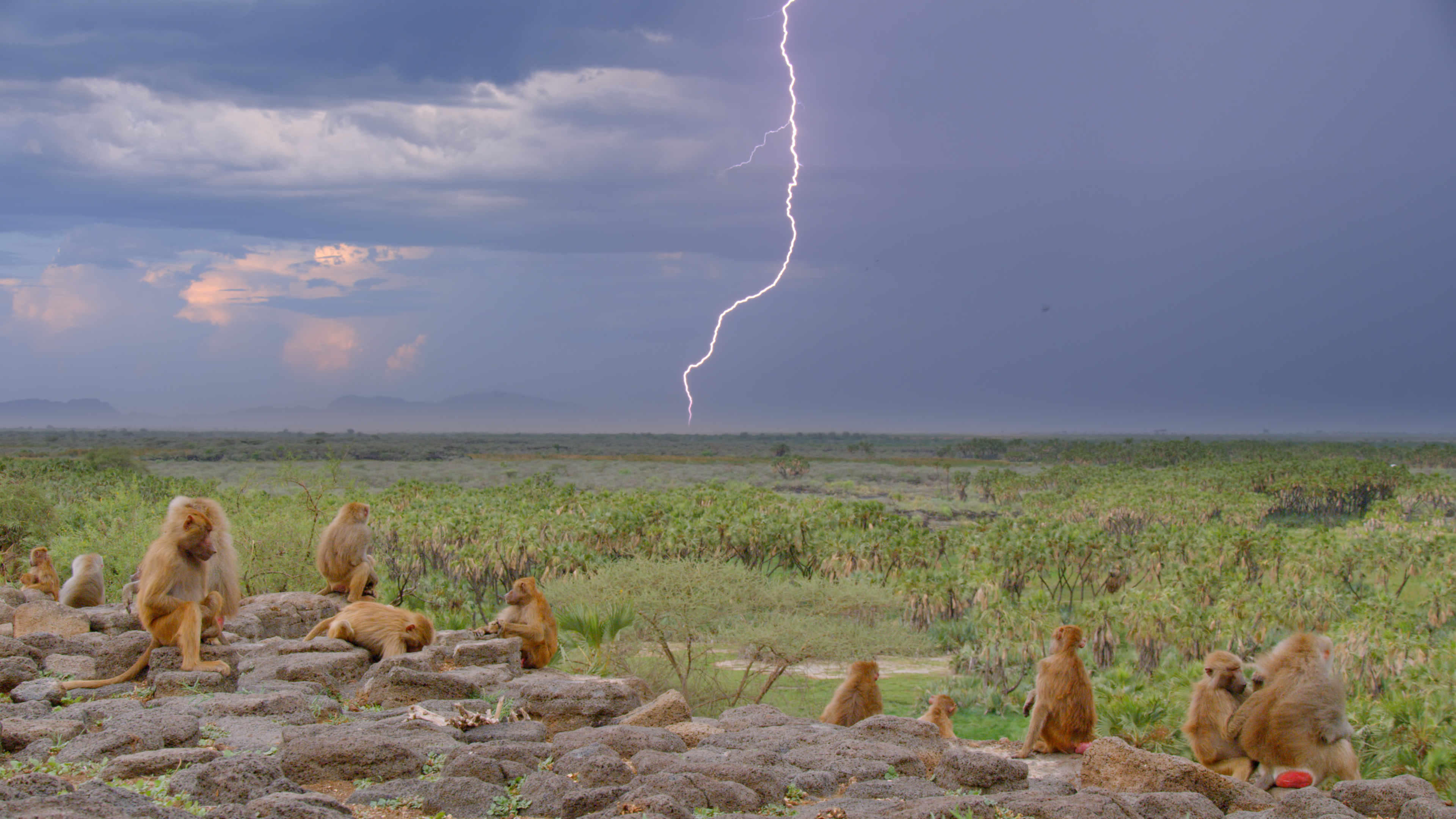What National Geographic Wants You to Know About 'Hostile Planet'

The smarter way to stay on top of the multichannel video marketplace. Sign up below.
You are now subscribed
Your newsletter sign-up was successful
National Geographic will shine a light on the animal world's survival tactics within the world's most extreme environments in a new, six-part nature series Hostile Planet, debuting April 1.
Using innovative camera technology, the series -- hosted by Bear Grylls (The Island) and produced by cinematographer/director Guillermo Navarro -- will showcase the often brutal conditions endured by animals on the planet, according to the network.
National Geographic executive vice president of global unscripted entertainment Geoff Daniels outlines how the network worked to push boundaries on the natural history documentary genre with Hostile Planet. Here’s what Daniels and Nat Geo wants you to know about Hostile Planet.
It’s not your mother’s nature series: Hostile Planet has an attitude; this isn’t pasteurized natural history filmmaking. This really has an extraordinary and distinct point of view that is pushing through the storytelling with a cinematic style that is helping us connect more deeply with stories of animals that are triumphing against all odds in some of the most extreme places at a time when the forces of nature are getting more volatile. The ability to walk a razor’s edge in the filmmaking, the storytelling, the dramatic stakes and the kind of lean-forward experience that typifies Hostile Planet is really going to set this apart from anything else out there.
It shines a light on the changing climates around the world: We are frankly looking at a world where, regardless of what you may think, the climate is changing. The forces of nature are getting more volatile -- you’re seeing a level of [climate] unpredictability that’s a challenge for all of us. The underlying narrative and motivation for this particular series has never been more relevant, more timely, and more important in terms of exposing to our audience the real plight of animals in some of the toughest climates in the world right now. We want to be able to do that in a way that isn’t about shaming or politicizing, but rather giving empathy and appreciation for just how hard these animals have it in the hardest places on their toughest day, and yet watching their resilience and ability to triumph. It gets people to better understand and appreciate the natural world, and then engage with us across all of [Nat Geo’s] platforms to do something about making these animal’s lives better, as well as making a more sustainable future for all of us.
It's more visually compelling and graphic than most natural history content: We now have the technologies that are enabling us to go into places and tell stories about animals that are so much more impactful in terms of bringing the animal’s perspective and point of view into the story equation in ways we haven’t been able to do before. We’re certainly programming it mindfully, and we’re being very truthful in how we’re presenting it and when we’re airing it in terms of the evening. We’re not making any of this stuff up … our family audiences are going to come to a new, more hopeful and inspired appreciation for what these animals go through. We’re never gratuitous or exploitative, but we’re really giving our audience an authentic experience of what these animals go through on a day to day basis.
The smarter way to stay on top of the multichannel video marketplace. Sign up below.
R. Thomas Umstead serves as senior content producer, programming for Multichannel News, Broadcasting + Cable and Next TV. During his more than 30-year career as a print and online journalist, Umstead has written articles on a variety of subjects ranging from TV technology, marketing and sports production to content distribution and development. He has provided expert commentary on television issues and trends for such TV, print, radio and streaming outlets as Fox News, CNBC, the Today show, USA Today, The New York Times and National Public Radio. Umstead has also filmed, produced and edited more than 100 original video interviews, profiles and news reports featuring key cable television executives as well as entertainers and celebrity personalities.

